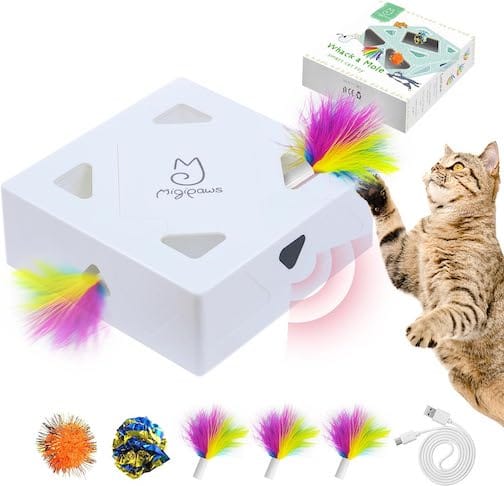Caring for Senior Cats: Health and Comfort
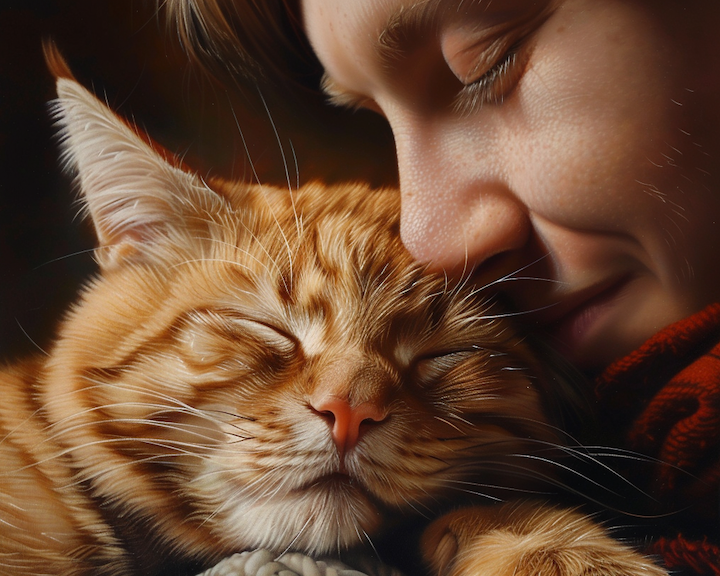
Embracing the Golden Years of Our Feline Friends
As our beloved feline companions step gracefully into their senior years, their needs evolve, demanding our extra care and attention. Senior cats, typically classified as those aged seven and above, enter a phase where their health and comfort should be our top priority. In this blog, we delve into the intricacies of caring for aging cats, ensuring their twilight years are as comfortable and joyful as their youthful days.
We'll explore the essential aspects of senior cat care, from understanding their unique dietary requirements to addressing common health concerns. We’ll also provide practical tips on creating a safe and nurturing environment, ensuring their emotional well-being, and maintaining an engaging lifestyle suited to their changing abilities. Join us as we navigate the rewarding journey of providing the best care for our senior cats, enhancing their quality of life and deepening the bond we share with them.
Understanding Senior Cats: Navigating the Later Stages of Feline Life
When do cats officially become 'senior'? This crucial transition typically occurs around the age of seven to ten years. However, just like humans, every cat ages uniquely, with some showing signs of aging earlier or later. It's pivotal to recognize this life stage, as it marks a period when our feline friends require extra care and observation.
As cats age, they often experience a range of physical and behavioral changes. Physically, you might notice a decrease in mobility or agility, changes in weight, or a dulled coat. Their senses – vision and hearing – might diminish, affecting their interaction with the world. Behaviorally, senior cats may display altered sleeping patterns, reduced activity levels, or variations in their social interactions. Understanding these changes is key to providing the right care and comfort, ensuring our senior cats continue to thrive in their golden years.
Dietary Needs: Nourishing Our Senior Cats for Optimal Health
The cornerstone of a senior cat's health lies in their diet. As they age, their nutritional needs evolve, making a balanced diet essential for maintaining their health and vitality. A diet tailored for senior cats should focus on easy digestibility, optimal nutrient absorption, and addressing specific health concerns that arise with age.
Key Nutrients for Senior Cats
Key nutrients for senior cats include high-quality proteins to support muscle maintenance, lower levels of fat to manage weight, and increased fiber for gastrointestinal health. Essential fatty acids, like Omega-3s, play a crucial role in maintaining healthy joints and a lustrous coat. Vitamins and minerals must be balanced to support overall health, with particular attention to those that support kidney and heart health.
Beneficial Supplements
Supplements can also be beneficial. Glucosamine and chondroitin are popular for joint health, while antioxidants help combat age-related cellular damage. Always consult with a vet before adding supplements to your cat's diet.
Feeding Practices
Feeding practices are equally important. Smaller, more frequent meals can aid digestion and nutrient absorption. Fresh water should always be available, and consider using water fountains to encourage hydration, a common challenge in senior cats.
By focusing on these dietary needs, we can significantly enhance the health and well-being of our aging feline friends.

Health Care: Proactive Strategies for Senior Cat Wellness
As our cats enter their senior years, they become more susceptible to a variety of health issues, making proactive and preventive health care vital. Common ailments in aging felines include kidney problems, arthritis, dental disease, and decreased cognitive function. Early detection and management of these conditions can significantly improve the quality and length of their lives.
Regular Veterinary Check-ups
Regular veterinary check-ups, at least once a year, are essential for senior cats. These visits allow for early detection of diseases common in older cats, including:
- Blood tests: Monitor kidney and liver function.
- Assessments: Check for signs of arthritis or other chronic conditions.
- Dental care: Regular dental care is crucial, as dental issues can lead to more significant health problems if left untreated.
Vigilance in Monitoring Behavior and Appearance
As a cat owner, being vigilant about changes in your cat's behavior or appearance is crucial. Watch for signs like:
- Increased thirst
- Changes in litter box habits
- Weight loss or gain
- Decreased mobility
- Altered eating patterns
These could indicate underlying health issues requiring veterinary attention.
By staying on top of these health care aspects, we ensure that our senior cats continue to live their lives with comfort and dignity, enriching our lives with their presence.Comfort and Accessibility: Tailoring the Environment for Senior Cats
As cats age, their need for a comfortable and accessible living space becomes more pronounced. Creating an environment that caters to their changing needs is crucial in ensuring their well-being. Soft, easily accessible bedding is essential, providing a warm and supportive place for rest. Consider orthopedic beds to alleviate discomfort from arthritis or joint issues.
Temperature regulation is also key. Senior cats are less efficient at regulating their body temperature, so maintaining a warm, draft-free environment is important. Heated beds or pads can offer additional warmth, especially in colder months.
Accessibility adjustments are vital. Lowering the height of litter boxes, or opting for ones with lower sides, eases access for cats with mobility issues. Similarly, placing ramps or steps near favorite perches or beds can help cats continue to enjoy their preferred spots without straining.
By focusing on these comfort and accessibility aspects, we create a nurturing environment for our senior feline friends, ensuring their golden years are spent in comfort and dignity.
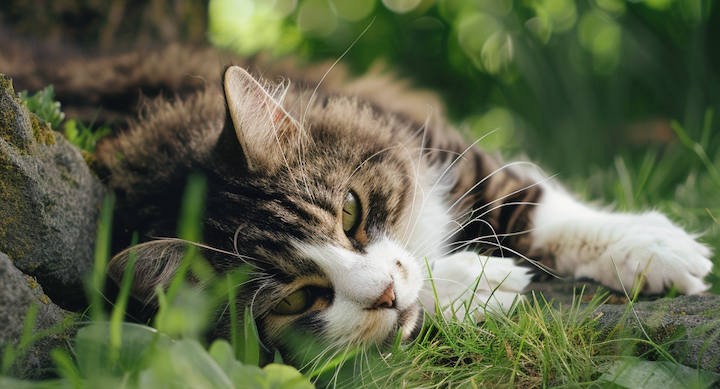
Activity and Engagement: Keeping Senior Cats Active and Content
Even in their senior years, cats benefit significantly from gentle exercise, which keeps them physically fit and mentally stimulated. Incorporating light activities into their daily routine can help maintain muscle tone, improve circulation, and reduce the risk of obesity.
Opt for toys that encourage gentle movement without overexertion, like soft balls or slow-moving interactive toys. Puzzle feeders are excellent for mental stimulation, engaging their natural hunting instincts in a low-impact way. Regular, gentle playtime not only keeps older cats active but also strengthens the bond between you and your beloved pet.
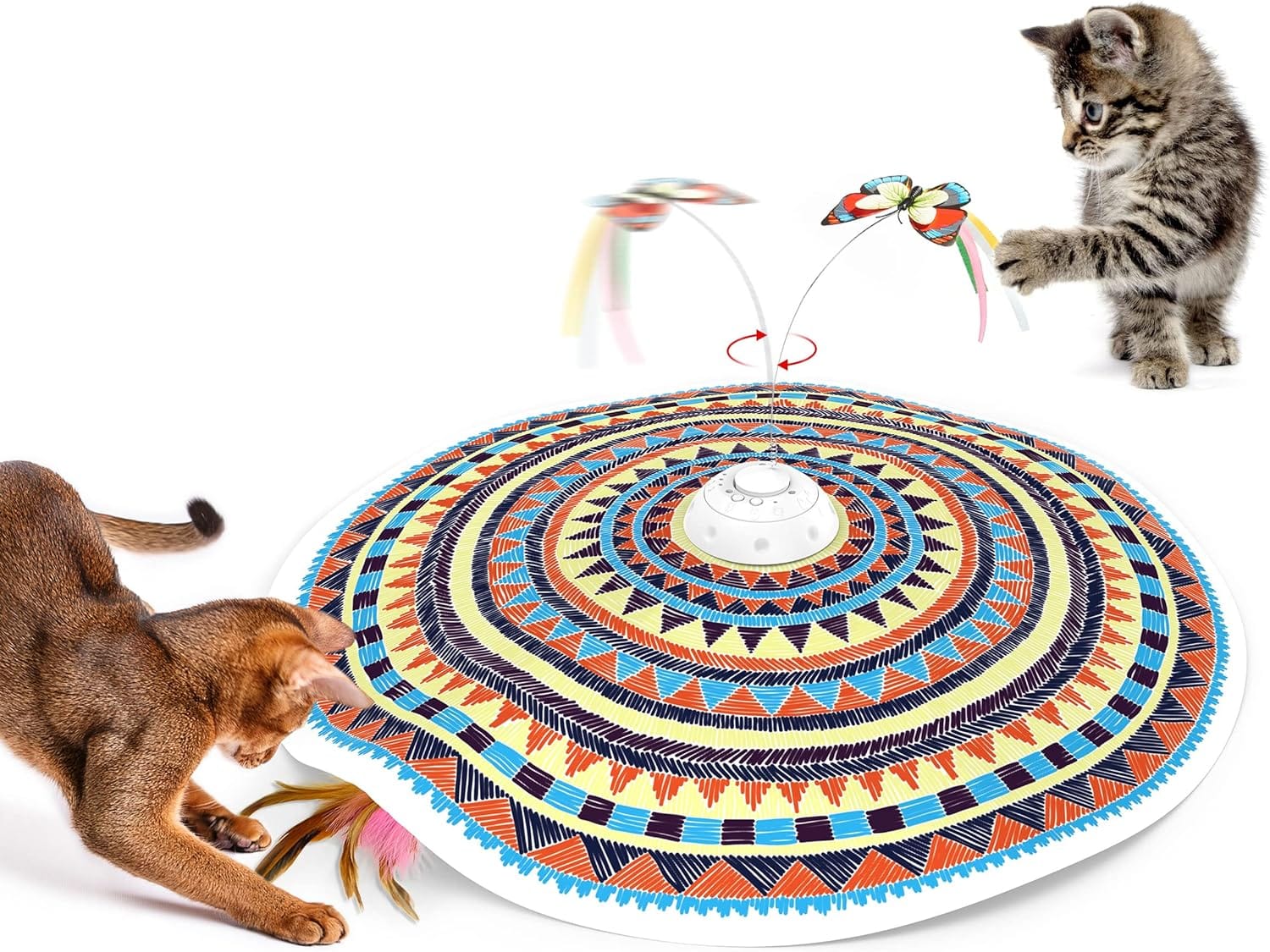
Potaroma Cat Toys Chargeable, 3in1 Hide and Seek, Automatic Interactive Toy, Fluttering Butterfly
Final Thoughts: Cherishing Every Moment with Our Senior Feline Friends
In caring for senior cats, we embrace a journey of love and dedication. Remember, a balanced diet, regular health check-ups, and a comfortable living environment are fundamental. Keep them engaged with gentle activities, and never underestimate the power of emotional support through companionship. As they grace their golden years, our attention and care adapt to their evolving needs, ensuring they continue to thrive. Let's cherish and celebrate every moment with our senior feline friends, providing them with the love and care they deserve, enriching their lives as much as they enrich ours.
Other product suggestions:
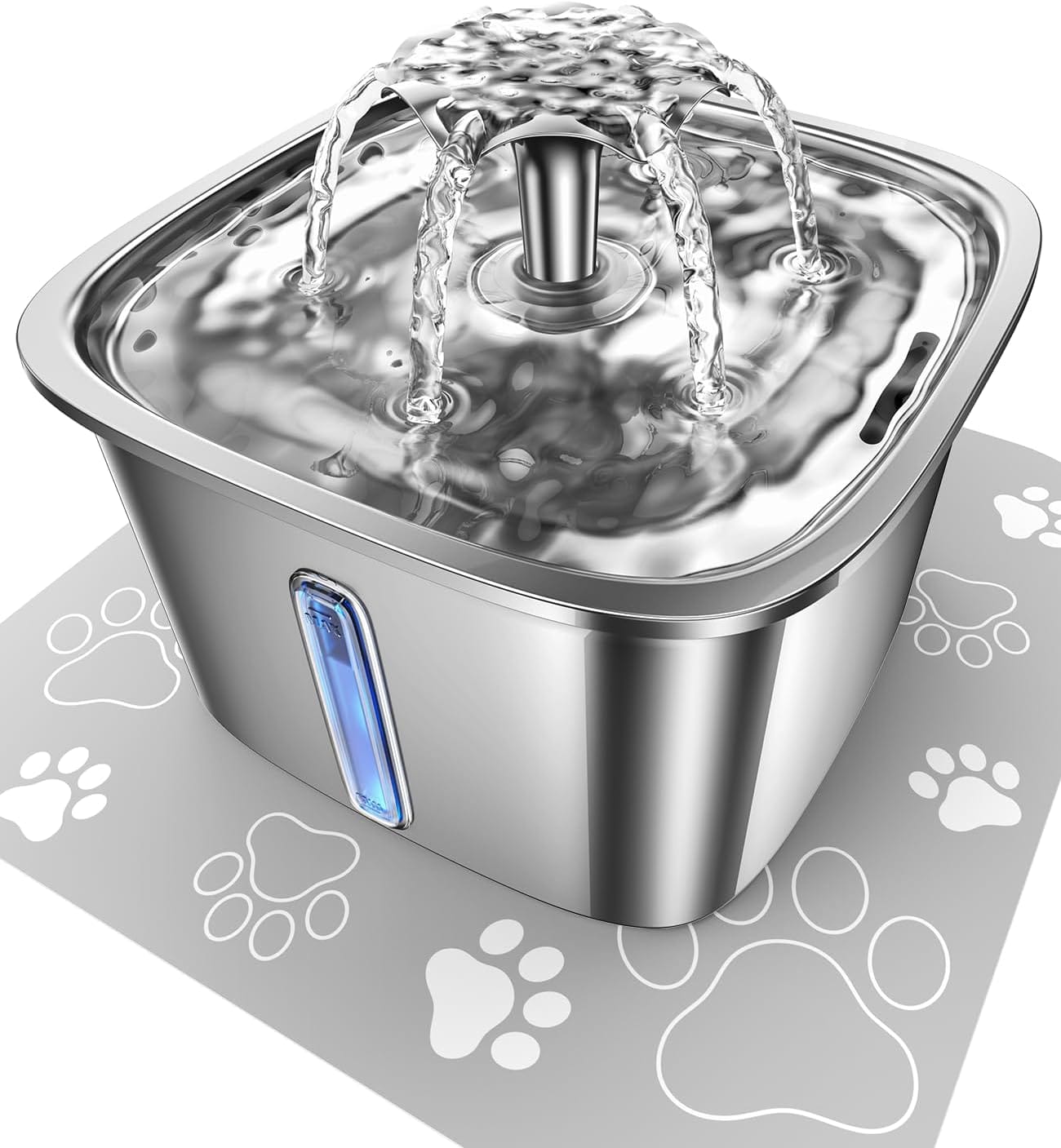
Veken Innovation Award Winner Stainless Steel Cat Water Fountain
A water fountain to encourage your senior cat to hydrate!
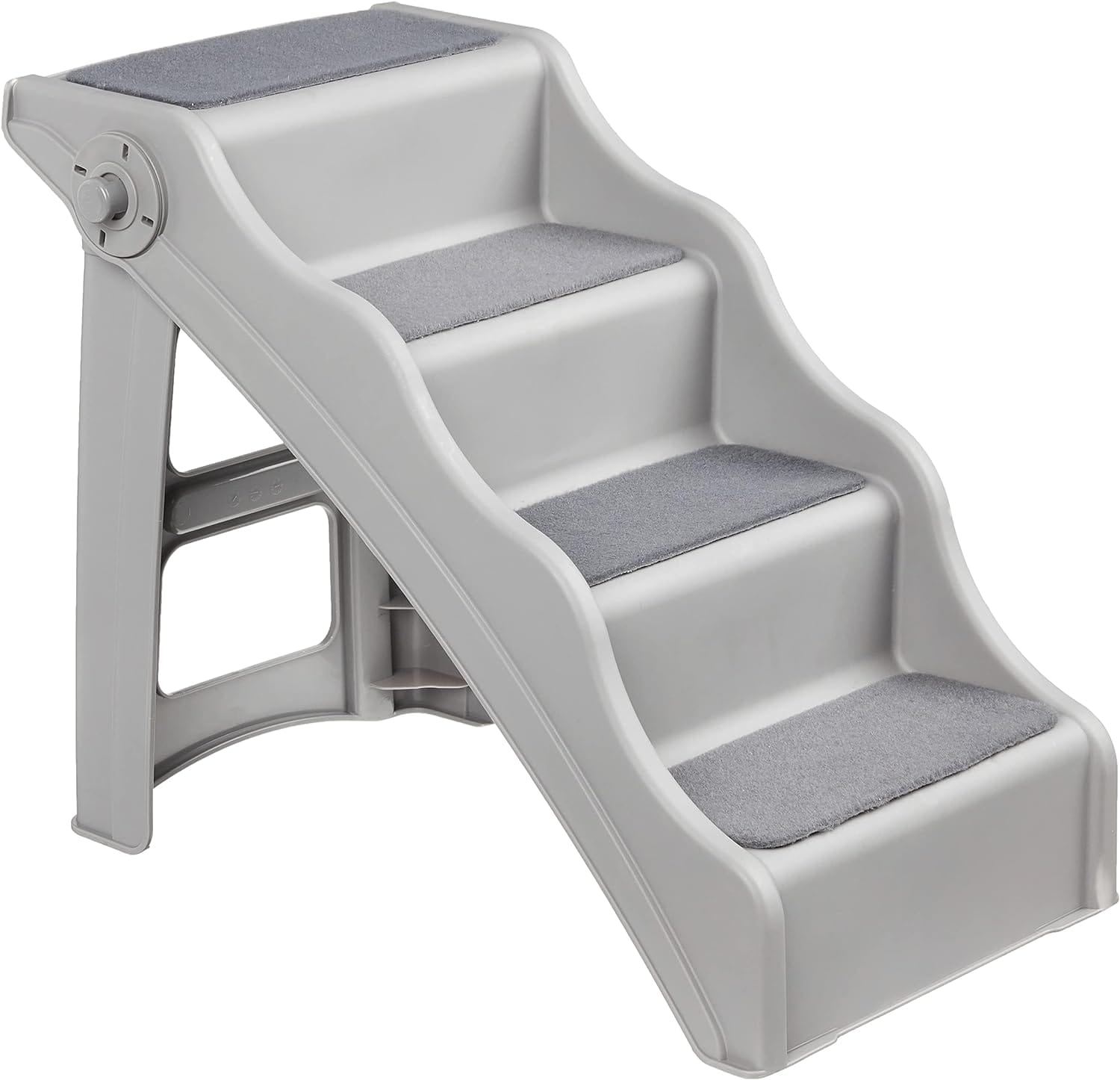
Amazon Basics Foldable Steps for Dogs and Cats, Grey, 14.6"X24.82"X19.5"
Essential support for senior cats with mobility issues, allowing them to easily access their favorite high spots without straining their joints. These durable and lightweight steps are perfect for creating a more accessible and comfortable environment for your aging feline friend.
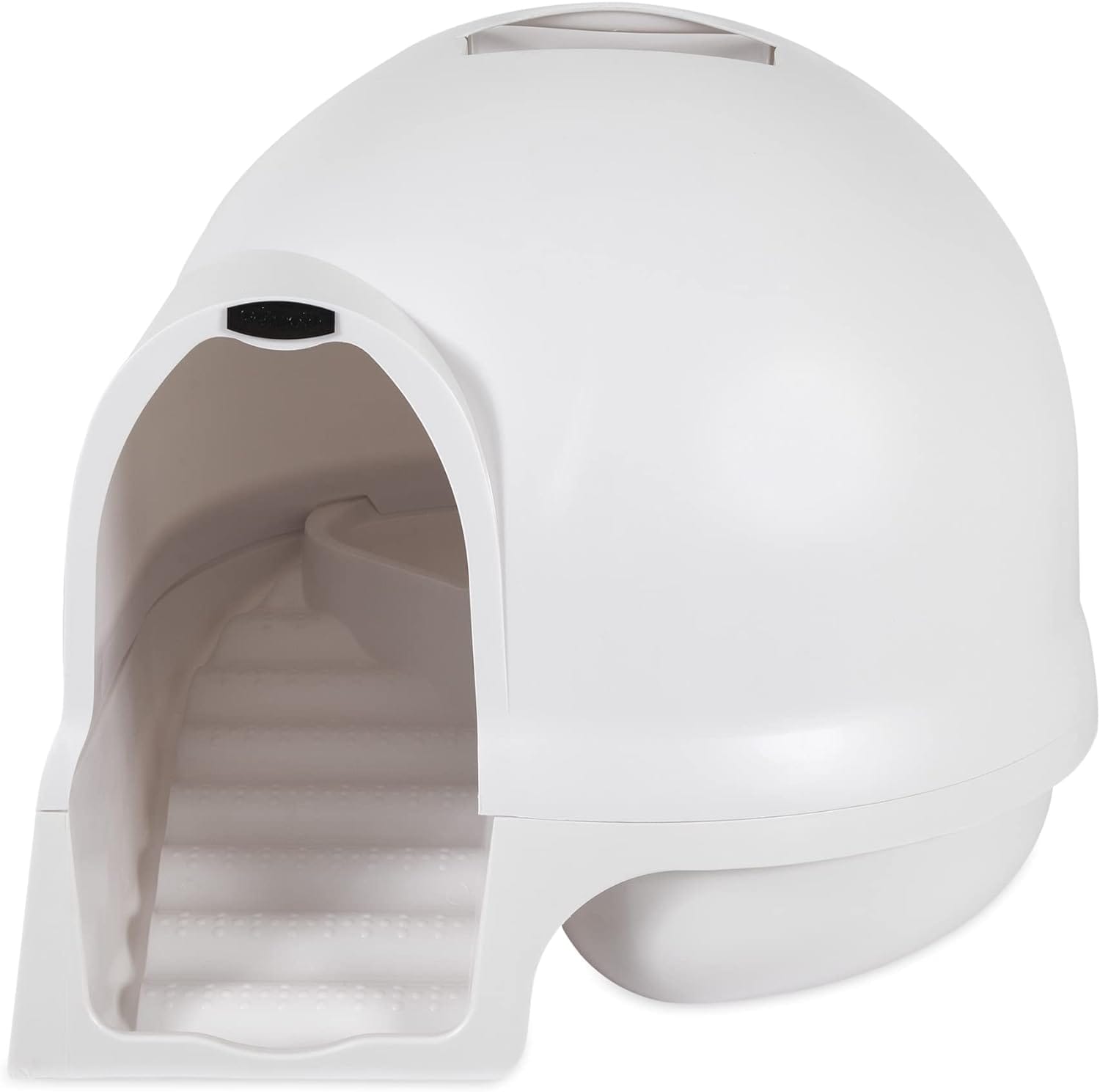
Petmate Booda Clean Step Cat Litter Box Dome (Made in the USA with 95% Recycled Materials)- Pearl White, Made in USA
The Petmate Booda Clean Step Cat Litter Box Dome offers senior cats an easy-access, covered litter box that provides privacy and helps contain odors. Made in the USA with 95% recycled materials, this eco-friendly litter box features a unique step design that reduces litter tracking and makes it easier for older cats to enter and exit.
Frequently Asked Questions about Senior Cat Care
How can I tell if my cat is becoming a senior?
Cats typically enter their senior years around the age of 7 to 10. Look for signs like less activity, more sleeping, weight changes, and a grayer coat.
What are some common health issues in senior cats?
Besides kidney issues and arthritis, watch for diabetes, thyroid problems, and decreased senses like hearing and vision.
How often should a senior cat visit the vet?
Senior cats should have a veterinary check-up at least once a year, though twice a year is ideal to catch any health issues early.
What changes should I make in my home for a senior cat?
Consider pet stairs or ramps for high places, non-slip mats, and more accessible litter boxes. Keeping their environment warm and cozy is also important.
How do dietary needs change for senior cats?
They may need lower-calorie food to prevent obesity, increased fiber for digestion, and supplements like glucosamine for joint health.
What are the signs of mental decline in senior cats?
Confusion, disorientation, changes in sleep patterns, and reduced interaction are signs of cognitive decline. Regular stimulation can help slow this process.
Should I groom my senior cat differently?
Yes, they might need more frequent grooming as they age. Be gentle, as their skin is thinner and they may have joint pain.
Is it normal for senior cats to sleep more?
Yes, increased sleeping is normal for older cats. However, if there are drastic changes in sleep patterns, consult your vet.
How can I ensure my senior cat is happy?
Keep them engaged with gentle play, maintain a comfortable environment, provide regular health care, and give them lots of love and attention.
